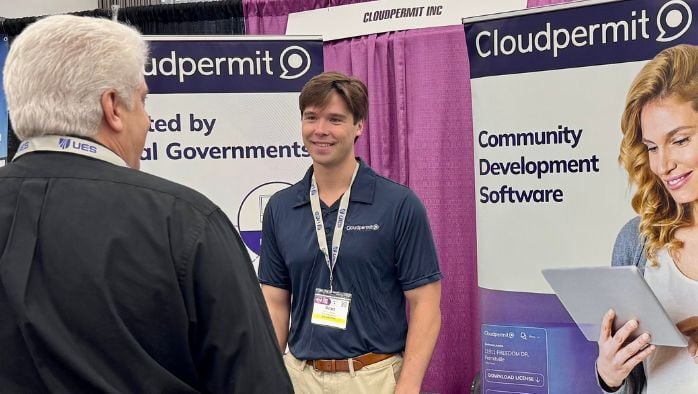How Permitting Reform Can Accelerate Housing Construction
January 9, 2025Accelerating community development remains a pressing issue in many communities across North America — especially doing something to address the housing shortage. As the permit to completion time has become much longer over recent years, it’s clear that there’s a need to find effective permitting reform options to tackle the problem.
An August 2024 report from Forest Economic Advisors looked at the latest numbers from the U.S. Census Bureau’s Survey of Construction and an analysis from the National Association of Home Builders to understand the latest trends. The results are shocking: The average time from submitting a building permit to completing a single-family home in America increased by three months from 2015 to 2023. The report broke down the reality of housing construction:
- 10.1 Months: The 2023 average completion time for a single-family house. This included one and a half months for authorization for construction and 8.6 months to build the house.
- 12.2 Months: The length of time from authorization to construction completion for homes built for rent.
- 15.2 Months: Authorization to completion average time for a custom home built by owners.
While federal, state, and local efforts and permitting reforms can make a big difference, there are many other ways that local government leaders can respond to the issue without waiting for legislative action. Ultimately, ensuring that your community’s permitting processes work well for your citizens and builders can bridge the gap between available housing and the demand for new homes, apartments, and condominiums — and it can shorten the time for new housing to be constructed by weeks or even months.
A Look at Permitting Reform Efforts
Permitting reform is a major effort at all levels of government in North America. Take, for example, the Department of Housing and Urban Development’s Pathways to Removing Obstacles to Housing grant program, announced in 2024, that offers grants to states, cities, and towns to streamline their permitting processes and rules to reduce barriers to housing.
According to an August 2024 report from The White House, median time in the permitting process jumped in communities across America, reaching 7.5 months in Boston, 30 months in New York City, and as long as 33 months in San Francisco. Even smaller towns are dealing with longer permitting turnaround times, preventing the start of construction on much-needed housing for their residents.
The American Planning Association endorsed the HUD grant program, calling for more efforts to speed up or streamline review and approval to deal with the housing shortage.
Reform examples are abundant at the state level as well. According to George Mason University’s Mercatus Center, 50 housing supply bills were enacted at the state level in the first six months of 2024 — nearly double the 30 housing supply bills during the same time in 2023. Zoning and building code reforms were also popular in many states over the past year.
The Foundation for Government Accountability cited Florida’s work in recent years to streamline its permitting processes as a way of expanding housing. HB 1059 in 2021, for example, gave cities and counties a specific window of time to process applications for building permits, with fees refunded if a permit wasn’t processed in a set number of days. HB 267, which went into effect in 2025, stepped up the reform with a requirement for local governments to approve building permits in five to 60 days, depending on the size of the project.
An onerous or delayed permitting process doesn’t just slow down the start of construction on housing — it also can increase the cost. An analysis from the James Madison Institute found that permitting delays increased the cost of a typical Florida house by $6,900, further pointing to the importance of addressing the permitting process as one part of the housing shortage problem.

How to Respond While Waiting for Permitting Reform
While federal, provincial, and state efforts to address the housing shortage are important, including with permitting reform, local governments don’t need to wait to do their part to deal with a lack of housing in their communities. Often, there are ways that streamlining processes close to home can accelerate community development.
Implementing comprehensive community development software, for example, can greatly improve the efficiency of city and county departments — and that can help builders get started much sooner.
The Town of Searsport, Maine, for example, was able to reduce its average permit turnaround time from two weeks to four hours or less when it switched to Cloudpermit’s online platform in 2023. The Town of Cobourg, Ontario, was able to increase its issued permits by 60% after implementing our software.
While this sped-up timeline helps builders get started sooner, the efficiency of adopting a modern community development platform also helps government departments and staff get more done. Meriwether County, Georgia, was used to applicants spending an hour in the office for a permit before using Cloudpermit. Now, builders apply online, and staff members have far fewer administrative tasks and a greatly reduced amount of paperwork.
Permitting reform is essential as one part of addressing the housing shortage — but ensuring that your community uses effective online permitting software can also be a big piece of the housing puzzle.
Learn More About How We Can Streamline Your Permitting
Dealing with a housing shortage requires a comprehensive solution, including permitting reform and finding ways to streamline internal processes. At Cloudpermit, we’ve seen firsthand how the right community development software can make a world of difference in helping builders get to work and build the housing that cities and counties need now more than ever.
Learn more about how we can help by booking a demo with us today.


